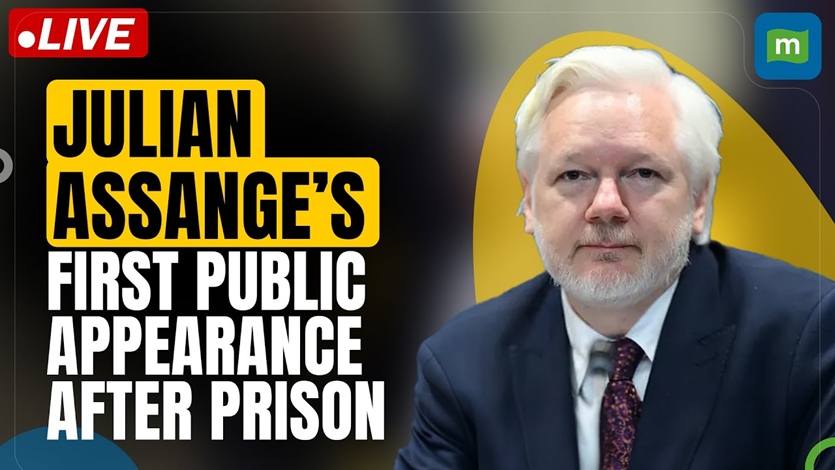Julian Assange, the Australian founder of WikiLeaks, has experienced a tumultuous journey that culminated in his release from Belmarsh prison in London, where he was held for over five years without being formally charged with a crime. His release on June 24, 2023, came after he agreed to plead guilty to an Espionage Act violation, a move he characterized as coerced by the U.S. government. On June 26, Assange returned to Australia for the first time since his arrest, greeted by family members, including his wife Stella and filmmaker brother Gabriel, who drew parallels between Assange’s struggles and the legendary hero Ulysses’s return from the Trojan War.
Following his long-awaited return home, Assange made a notable public appearance before the Parliamentary Assembly of the Council of Europe (PACE) in Strasbourg on October 1, 2023. This was his first statement since his release. In a 22-minute speech, Assange underscored that he was essentially forced to “plead guilty to journalism” during his time in captivity and highlighted the risks his prosecution poses to press freedom and journalism. He asserted that journalists should never face prosecution for fulfilling their roles and warned that the implications of his case affect journalists across Europe and around the world.
Assange’s address was a crucial moment in the ongoing dialogue on press freedoms and human rights, attracting support from various organizations, including Reporters Without Borders (RSF). They emphasized the need for the Council of Europe to act decisively to prevent such judicial actions from occurring in the future. The report prepared by PACE regarding Assange’s detention underscored the threats posed to human rights and free speech, calling for urgent protective measures for journalists. During this hearing, Assange engaged with PACE members, expressing his gratitude for their support and advocating for further actions to reinforce press freedom.
The transformation of journalism driven by WikiLeaks, as articulated by scholars and experts, reaffirms Assange’s role as an integral figure in 21st-century journalism. Dr. Suelette Dreyfus praised Assange’s innovative introduction of an anonymous digital drop box for whistleblowers, which set a standard for confidentiality in leaking sensitive information. This pioneering model has since been emulated by major media organizations, although many have failed to stand by Assange amid his prosecution. The struggle for free speech, particularly in the face of increasing state surveillance and suppression of dissent, is more pressing than ever, with Assange’s work emblematic of the fight against such encroachments.
Advocates have also drawn connections between Assange’s predicament and broader global issues concerning freedom of expression. Concerns about rising authoritarianism, particularly in the context of international relations and governance, resonate in Assange’s warnings. His insights suggest that the eventual fate of press freedoms could reflect larger societal values toward accountability and transparency, especially in an environment increasingly characterized by pervasive surveillance. This dynamic harbors grave implications not only for journalists but for the integrity of public discourse and democratic systems globally.
In his speeches and public commentary, Assange has consistently framed his experiences within a larger historical struggle. He urged citizens worldwide to assert their right to scrutinize state actions as critical to preserving democratic accountability. Assange identifies a key ideological battleground between state secrecy—claimed in the name of security—and the rights of individuals to know the truth about governance. Asserting that secrecy belongs to powerful institutions rather than citizens, Assange emphasizes the moral imperative of transparency in public affairs and the need for continued vigilance against attacks on press freedom and civil liberties. Ultimately, his journey underscores not just a personal fight for freedom but a broader challenge to the rights of all citizens to hold authority accountable.

